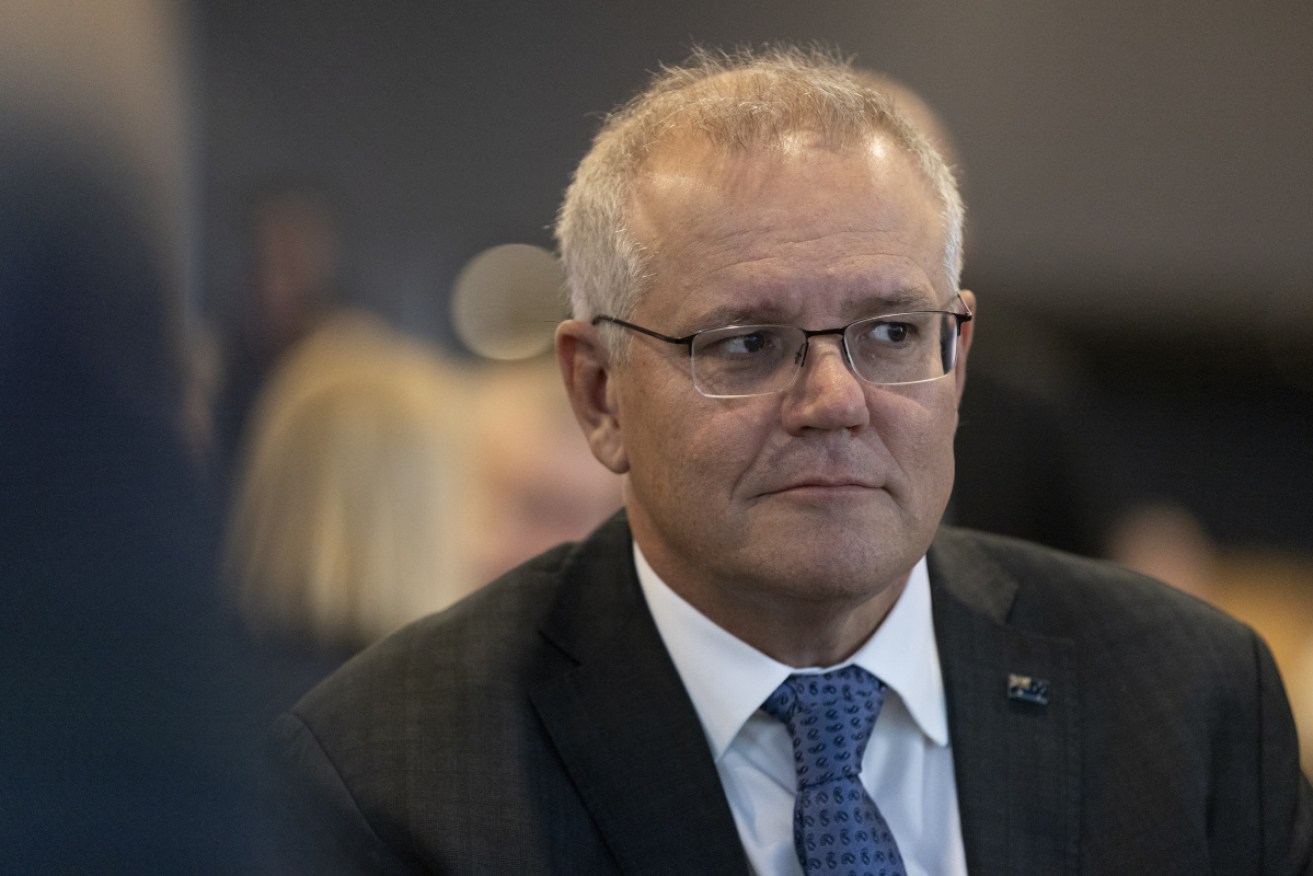Australia’s vaccination failings exposed at G7 meeting


Prime Minister Scott Morrison has blamed ATAGI for Australia's slow vaccine rollout. Photo: Getty
Scott Morrison has been forced to defend Australia’s vaccination failings on the world stage, as the Prime Minister was grilled over the lagging rollout at the G7 summit in Britain.
When pushed, Mr Morrison could not say what percentage of the population would need to be vaccinated before international travel could resume.
Only 2.6 per cent of Australians are fully vaccinated, according to data from Johns Hopkins University.
That places us below the world average, and behind countries like Peru, Lebanon and Zimbabwe.
Meanwhile, Britain and the United States have fully vaccinated more than 43 per cent of their populations.

Prime Minister Scott Morrison greets UK Prime Minister Boris Johnson on day two of the G7 Summit in Cornwall, UK. Photo: Getty
Aside from the usual G7 topics of international security and the world economy, COVID-19 has dominated this year’s meeting.
But while international travel has resumed for some world leaders, Australia’s vaccine rollout continues to lag behind, further delaying the date when Australians can head overseas.
And there are no signs of rapid improvement.
When questioned about Australia’s approach to fighting the pandemic on Saturday (GMT), Mr Morrison said the nation would continue to pursue its aggressive suppression strategy.
He told reporters that despite the high vaccination rates in the UK, which has led to fewer COVID hospitalisations, the country is still experiencing “very high numbers of cases”.
“At this stage of the pandemic, it is not clear where it goes next … the potential for new strains and other things to occur – it means there is still much we don’t know,” Mr Morrison said.
Although he conceded Australians weren’t allowed to travel overseas, he said they can “go to sporting games, or they can go to work, they can live in an economy that is bigger today than it was before”.
When asked what percentage of Australians will need to be vaccinated before international travel could resume, Mr Morrison replied: “We haven’t set any mark on that.”
According to leading immunologist Professor Peter Doherty, Australia “should be able to open up safely when we have 70 to 80 per cent of the population vaccinated and we have treatments”.
Dr Nick Coatsworth, former deputy chief medical officer and infectious disease specialist, wrote in the Nine newspapers “a significant majority” should be vaccinated before borders reopen.
In a Sunrise interview, he said rates of 60 to 90 per cent were needed for “COVID control within the community”, but a rate to wipe out the virus in Australia “may be unattainable”.
Victoria introduces temporary Pfizer block
Adding to vaccine rollout concerns is a recent decision by the Victorian government to ban walk-ins at vaccination hubs from getting their first Pfizer shot “due to ongoing vaccine supply issues”.
From Monday, the only Victorians who will be able to receive a Pfizer jab at vaccination hubs are those who have already had their first dose, or essential workers and those with travel exemptions.
Everyone else can either choose to wait “until further notice”, or get an AstraZeneca shot instead.
This is despite the fact Victoria will receive an extra 100,000 Pfizer doses from the federal government over the next three weeks.
On Sunday, Victoria’s testing commander Jeroen Weimar defended the decision to restrict access to the Pfizer vaccine, telling reporters “we’ve got sufficient supply”.
“We have enough supply to ensure people who are due to get their second doses in the three- to six-week window will get their dose,” he said.
About 50,000 people are booked in for their first Pfizer dose this week –the maximum number of first doses the Victorian government says it can do.
“We will hold back a number of first doses to make sure second doses are done on time within the capacity of supply we have,” Mr Weimar said.
Victorian Health Minister Martin Foley said Australia must “have the conversation” about opening up again.
But he said “we are nowhere near that point yet” and pointed to “the constraints of the Commonwealth supplies”.
And supply won’t be the only vaccine roadblock, either.
A survey conducted earlier in June by the Melbourne Institute found 29 per cent of Australians are either unwilling to be vaccinated (16 per cent) or don’t know whether they want to be vaccinated (13 per cent).
Meanwhile, new modelling from Melbourne’s Burnet Institute found Australia was unlikely to achieve herd immunity with current levels of COVID-19 vaccine hesitancy and the higher infectiousness of new variants.
The models indicate public health measures like snap lockdowns and mask wearing will be a feature of Australian life for at least another 12 months.








